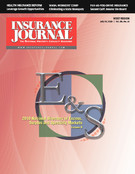Securities lawsuits against BP and Toyota may be substantially narrowed, thanks to a recent Supreme Court decision. On June 24, 2010, in a long-awaited decision that will affect the circumstances under which non-U.S. companies can be sued under U.S. securities laws, the Supreme Court released its opinion in the Morrison v. National Bank of Australia. This case will not only affect many pending cases involving foreign companies, but it also could have a significant impact on future filings, and it could spur legal reforms, both in the United States and abroad.
The case itself involved National Australia Bank, one of Australia’s largest banking institutions. In 2003, NAB investors who purchased their shares on the Australian securities exchange sued the bank and several of its directors and officers in federal court in Manhattan.
The investors alleged that the bank’s U.S.-based subsidiary, HomeSide, used unreasonably optimistic valuation methodologies in connection with financial modeling of its $180 billion mortgage servicing portfolio. As a result, the company’s financial condition was materially overstated during the Class Period. On Sept. 3, 2001, NAB announced that it would write off $1.75 billion due to problems at HomeSide, and NAB’s share price declined. The investors claimed they had purchased their NAB shares at prices that had been inflated by the alleged misrepresentations.
The district court dismissed the case for lack of subject matter jurisdiction, and the investors appealed to the Second Circuit court of appeals. In October 2008, the Second Circuit affirmed the dismissal, applying its long-standing “conduct” based test to determine that there was insufficient U.S.-based activity to support jurisdiction here, because NAB’s financial statements were published from its Australian headquarters. The investors appealed to the U.S. Supreme Court.
In its June 24 opinion, the Court set aside the “conduct” based test that the lower courts had been using to determine whether or not a U.S court could exercise jurisdiction against non-U.S. defendants under the securities laws. In its stead, the Court adopted a “transaction” based test, which the Court said is what the securities laws themselves require.
Under this new standard, courts must ask not where the conduct occurred, but rather where the underlying securities transaction took place. Because the investors in the NAB case had purchased their shares on a non-U.S. exchange, their cases could not go forward in U.S. courts under U.S. laws.
This outcome could have a substantial impact on a large number of cases now pending in the U.S. courts. Lawsuits against non-U.S. companies have been a significant part of all securities class action lawsuit filings in recent years. Fifteen percent of all securities lawsuits filed in 2008 and more than 12 percent of all 2009 securities suits involved foreign companies. Many of these cases involve claimants who bought their shares on non-U.S. exchanges. These cases seem likely to be substantially narrowed and or even dismissed altogether.
Among the prominent cases filed in 2010 that seem likely to be affected by the Supreme Court’s ruling are the securities class action lawsuits involving BP and Toyota, as many of the claimants on whose behalf these suits were filed purchased their shares in those companies on securities exchanges outside the United States.
Another high-profile case that seems likely to be affected by the Supreme Court’s ruling is the long-running securities suit pending against Vivendi, which actually resulted in a jury verdict against the company earlier this year. Because more than three-quarters of Vivendi’s shareholders reside in France, and therefore likely bought their shares outside the United States, the class of claimants in that case seems likely to be narrowed.
The upshot of this is not just that pending cases will be affected, but also that companies domiciled outside the United States may now be less likely to be subject to securities class action litigation here, particularly companies whose shares do not trade in U.S. securities exchanges.
However, by the same token, non-U.S. companies whose shares do trade on U.S. exchanges will still be subject to securities litigation here, at least on behalf of investors who bought their shares on U.S. exchanges. It is possible that this litigation exposure might be enough to discourage some foreign companies from listing their shares here, as a way of eliminating the potential burden and expense of U.S. class action securities litigation.
The U.S plaintiffs’ securities class bar is highly motivated to try and come up with ways to continue to pursue claims here against foreign companies on behalf of foreign investors. One possibility is that the plaintiffs’ lawyers will seek to file common law fraud claims in state court or even in federal court, trying to argue that U.S.-based conduct is enough to support these kinds of cases here, even if the conduct will not support class action litigation under the securities laws.
Among the litigants whom the Supreme Court’s decision affects are non-U.S. institutional investors, who in recent years had become increasingly interested in using U.S. procedures and remedies to pursue fraud claims against non-U.S. companies. These investors will now have to look to the laws of their home jurisdictions to pursue these claims. This in turn may lead both to an increase in investor litigation in these other countries and, to the extent existing procedures and remedies in those countries prove to be insufficient, to pressure for legal reform to allow greater investor relief.
Another possibility is Congressional reform. Investor groups and others could agitate for legislation that would allow U.S. securities litigation against foreign domiciled companies based on conduct in the United States. In fact, there were proposals offered during the current Congressional session that proposed to do this very thing, and the financial reform legislation working its way through Congress provides for an SEC study of the issue.
But as things currently stand, the U.S.-based securities class action exposure of many non-U.S. has been substantially reduced. This not only changes the potential litigation exposure for these companies, but it could also mean that fewer securities class action lawsuits overall are filed.
Was this article valuable?
Here are more articles you may enjoy.


 Vintage Ferrari Owners’ Favorite Mechanic Charged With Theft, Fraud
Vintage Ferrari Owners’ Favorite Mechanic Charged With Theft, Fraud  Progressive Records Five-Fold Increase in Q1 Net Income
Progressive Records Five-Fold Increase in Q1 Net Income  AIG Sues Newly Launched Dellwood Insurance and Its Founders
AIG Sues Newly Launched Dellwood Insurance and Its Founders  Former Congressman Charged After Collision with State Trooper in Florida
Former Congressman Charged After Collision with State Trooper in Florida 


